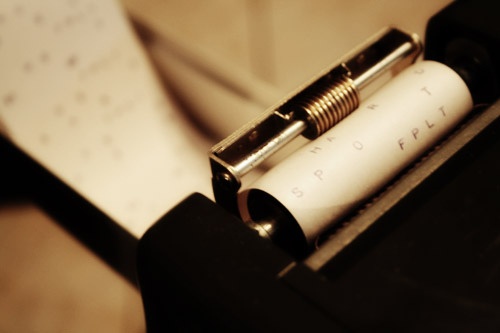I spent the five happiest years of my life in a morgue. As a forensic scientist in the Cleveland coroner’s office I analyzed gunshot residue on hands and clothing, hairs, fibers, paint, glass, DNA, blood and many other forms of trace evidence, as well as crime scenes. Now I'm a certified latent print examiner and CSI for a police department in Florida. I also write a series of forensic suspense novels, turning the day job into fiction. My books have been translated into six languages.
32. It was my second career, I majored in political science during my first round at college and was a personnel secretary for ten years first.
That's called the 'CSI Effect' and it can be a problem for juries to have unrealistic expectations. One instructor described it as "Juries don't know as much as they think they know, but they really do know a lot more than they used to know."
Biology would help with the natural fibers (like cotton or fibers from plants, or hairs from animals like wool) and chemistry helped with analyzing synthetic fibers with polarized light or fourier transform infrared spectroscopy. Those last two don't work on natural fibers because they're not consistent all the way through like a synthetic fiber, that comes out of a machine.
Fiber analysis was usually only examined in cases of stabbing, strangling or bludgeoning, where there had to be close physical contact between victim and suspect. (A gunshot didn't mean there had to be contact.) It was only a small part of my days. Very little is done any more because you can only say the fibers are consistent with having come from a particular sample, you can't say they did, as in DNA or fingerprints. You can't even give a statistic for how likely it would be to find a particular fiber unless it came from the suspect, etc., because we can't know how many items with that fiber are in the environment.
Only collection would be done in the field, to do anything more you would need the microscopes and the equipment at the lab.
Hope that helps!
Sure, email me at lisa-black@live.com.
Court Reporter
 How do you transcribe when people in the courtroom are talking over and interrupting each other?
How do you transcribe when people in the courtroom are talking over and interrupting each other?
Day Care Provider
 Do the kids ever reveal embarrassing things about their parents?
Do the kids ever reveal embarrassing things about their parents?
Beauty Queen
 Have you ever suspected that the judging in a pageant was rigged?
Have you ever suspected that the judging in a pageant was rigged?
I think it would certainly be an asset!
Best of luck.
The people to ask would be the people hiring forensics personnel in LA county. All agencies (the police department, the sheriff's office, the medical examiner's office) should all have websites that post current job openings. If they don't have any current postings, then you can always call them and ask. That's the only way to know for sure. Best of luck!
I’ve never had someone ask for transcripts at an interview, and I think it would be a little unreasonable for them to expect you to have them with you without warning.It will be generally like any other interview. When they ask what experience you have in forensics be sure to mention specific tests and techniques you’ve done, like superglue, crime scene reconstruction, the AFIS system, etc.
-OR-
 Login with Facebook
Login with Facebook (max 20 characters - letters, numbers, and underscores only. Note that your username is private, and you have the option to choose an alias when asking questions or hosting a Q&A.)
(A valid e-mail address is required. Your e-mail will not be shared with anyone.)
(min 5 characters)
By checking this box, you acknowledge that you have read and agree to Jobstr.com’s Terms and Privacy Policy.
-OR-
 Register with Facebook
Register with Facebook(Don't worry: you'll be able to choose an alias when asking questions or hosting a Q&A.)